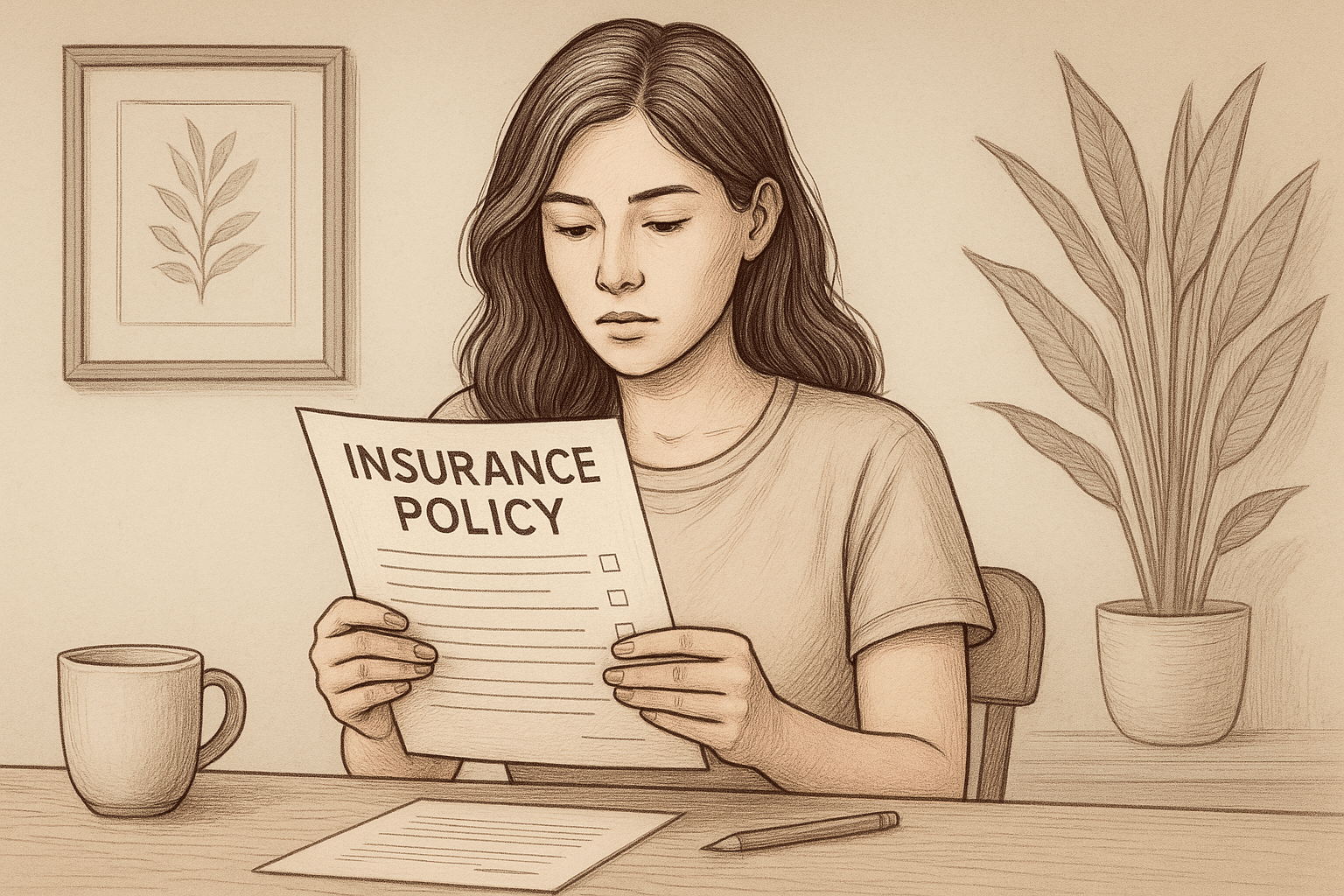
Key Takeaways
- Anxiety disorders qualify as pre-existing conditions under most insurance definitions, but protections exist under the Affordable Care Act (ACA) for health insurance coverage.
- Life insurance applications require disclosure of anxiety diagnoses, potentially affecting premium rates or eligibility depending on severity and treatment history.
- Documentation of successful treatment and medication management can significantly improve your chances of favorable insurance terms despite an anxiety diagnosis.
- Alternative coverage options exist for those facing challenges securing traditional insurance due to anxiety disorders.
- Mission Connection helps clients navigate mental health care systems, including understanding insurance coverage for anxiety treatment while providing personalized, evidence-based care.
Anxiety & Insurance Coverage
Anxiety disorders are typically considered pre-existing conditions by insurance companies. This classification includes generalized anxiety disorder (GAD), panic disorder, social anxiety, and related conditions that have been diagnosed by a healthcare professional.
The key distinction is whether you’ve received a formal diagnosis or sought treatment before applying for insurance coverage.
Insurance companies define pre-existing conditions as health issues that existed before the start date of your health insurance policy. For anxiety specifically, this typically means you’ve been diagnosed or received treatment for anxiety symptoms before applying for coverage.
Even if symptoms were present but undiagnosed, some insurers may still consider this a pre-existing condition if medical records indicate anxiety-related complaints.
Mission Connection offers flexible outpatient care for adults needing more than weekly therapy. Our in-person and telehealth programs include individual, group, and experiential therapy, along with psychiatric care and medication management.
We treat anxiety, depression, trauma, and bipolar disorder using evidence-based approaches like CBT, DBT, mindfulness, and trauma-focused therapies. Designed to fit into daily life, our services provide consistent support without requiring residential care.
Rules for Pre-Existing Condition Insurance
ACA Protections
Under the Affordable Care Act (ACA), health insurance companies cannot deny coverage or charge higher premiums based solely on pre-existing conditions, including anxiety disorders.
This landmark protection means that if you have a documented anxiety condition, health insurers must offer you the same plans at the same premium rates as someone without anxiety. Additionally, insurers cannot impose waiting periods for coverage related to your anxiety treatment or exclude benefits specifically for your condition.
Insurance Marketplaces
Health insurance marketplaces established under the ACA provide guaranteed access to coverage regardless of your anxiety diagnosis. When shopping for plans through these marketplaces, your anxiety disorder cannot be used as a basis for denial or rate increases.
These plans must also cover essential health benefits, which include mental health services and prescription medications that may be part of your anxiety treatment plan.
Employer Plans
Employer-sponsored health insurance plans must also comply with ACA regulations regarding pre-existing conditions. This means your workplace health insurance cannot exclude coverage for anxiety-related treatments or charge you more because of your condition.
However, be aware that self-funded employer plans may have some flexibility in benefit design, though they still cannot outright deny coverage based on your anxiety diagnosis.
Medical Insurance Options for Anxiety
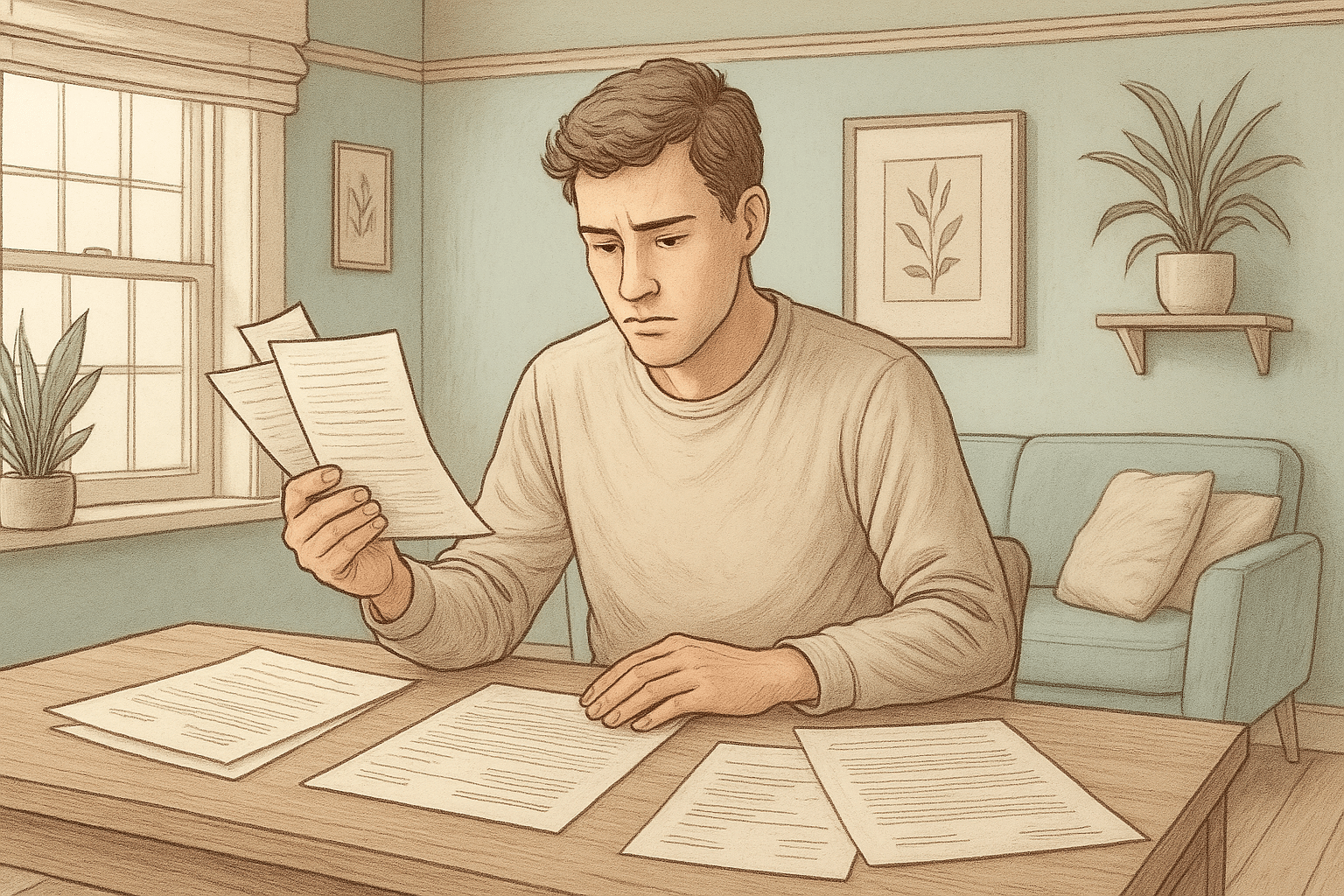
Group Coverage Benefits
Employer-sponsored group health plans often provide comprehensive mental health coverage, making them valuable for those with anxiety disorders. These plans typically include access to a network of mental health providers and coverage for prescription medications commonly used to treat anxiety.
The Mental Health Parity and Addiction Equity Act requires these plans to offer mental health benefits comparable to medical and surgical benefits, ensuring you receive adequate coverage for anxiety treatment.
Individual Plans
Individual health insurance plans purchased through the ACA marketplace must include mental health services as essential health benefits.
When selecting a marketplace plan, pay close attention to the provider network and formulary to ensure your current mental health providers and medications are covered. Out-of-network care can significantly increase your out-of-pocket costs, even with insurance coverage.
Medicaid Expansion
For those with limited income, Medicaid expansion under the ACA has increased access to mental health services in many states. Medicaid plans typically cover mental health services with minimal cost-sharing, making them an excellent option for anxiety treatment if you qualify.
Coverage includes therapy sessions, psychiatric consultations, and necessary medications, though provider availability may vary by location.
Life Insurance Challenges with Anxiety
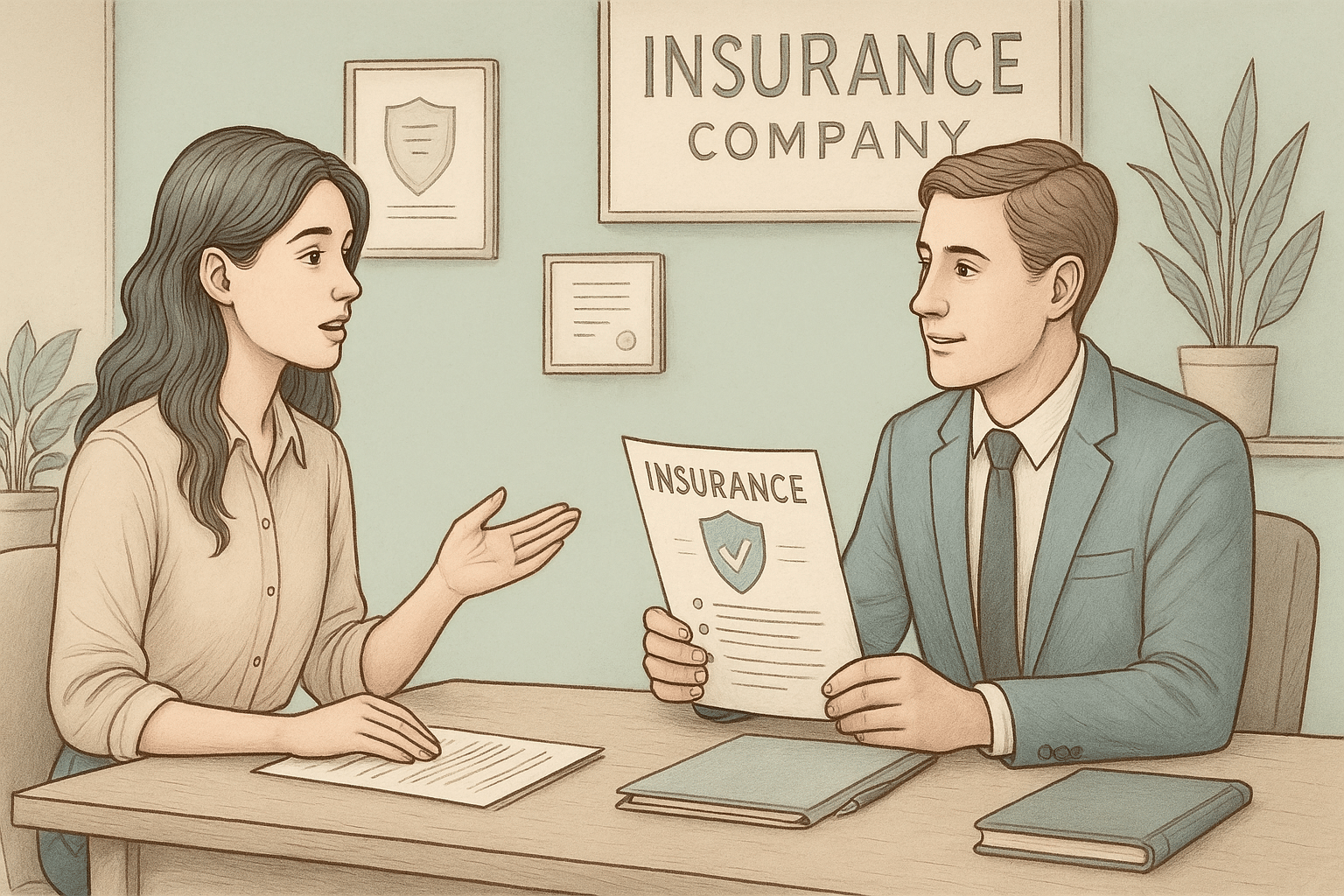
Underwriting Process
When applying for life insurance with an anxiety diagnosis, underwriters will evaluate several factors specific to your condition. They’ll review when you were diagnosed, the severity of symptoms, hospitalization history, medication regimens, and how well you’re managing the condition.
Some insurers require additional medical exams or statements from your treating physicians to fully assess the risk associated with your anxiety. The underwriting process typically takes longer for applicants with pre-existing conditions like anxiety compared to those without health concerns.
Disclosure Requirements
You must disclose your anxiety diagnosis on life insurance applications, even if your symptoms are well-controlled. Failing to disclose this information constitutes insurance fraud and could result in policy cancellation or denial of benefits to your beneficiaries.
Most applications specifically ask about mental health diagnoses, treatment history, and medication use. Be prepared to provide names and contact information for all healthcare providers who have treated your anxiety, with dates of treatment and any hospitalizations related to your condition.
Rate Implications
Life insurance premiums for individuals with anxiety disorders typically fall into standard or substandard rate categories, depending on severity and management. Mild, well-controlled anxiety with minimal medication might only see a slight premium increase, while severe anxiety with multiple medications or hospitalizations could face significant rate hikes.
Some insurers specialize in coverage for those with mental health conditions and may offer more competitive rates than traditional providers. The timing of your application also matters; showing a stable period of successful treatment can positively influence your rate classification.
Policy Rejections
While complete rejections for anxiety alone are uncommon, they can occur in cases of severe, uncontrolled anxiety or when combined with other health issues.
More frequently, insurers may offer coverage with exclusions or higher premiums rather than outright denial. If one insurer rejects your application, don’t lose hope; different companies have varying underwriting guidelines for anxiety disorders and you can get another company that is more lenient.
Alternative Insurance Coverage Options
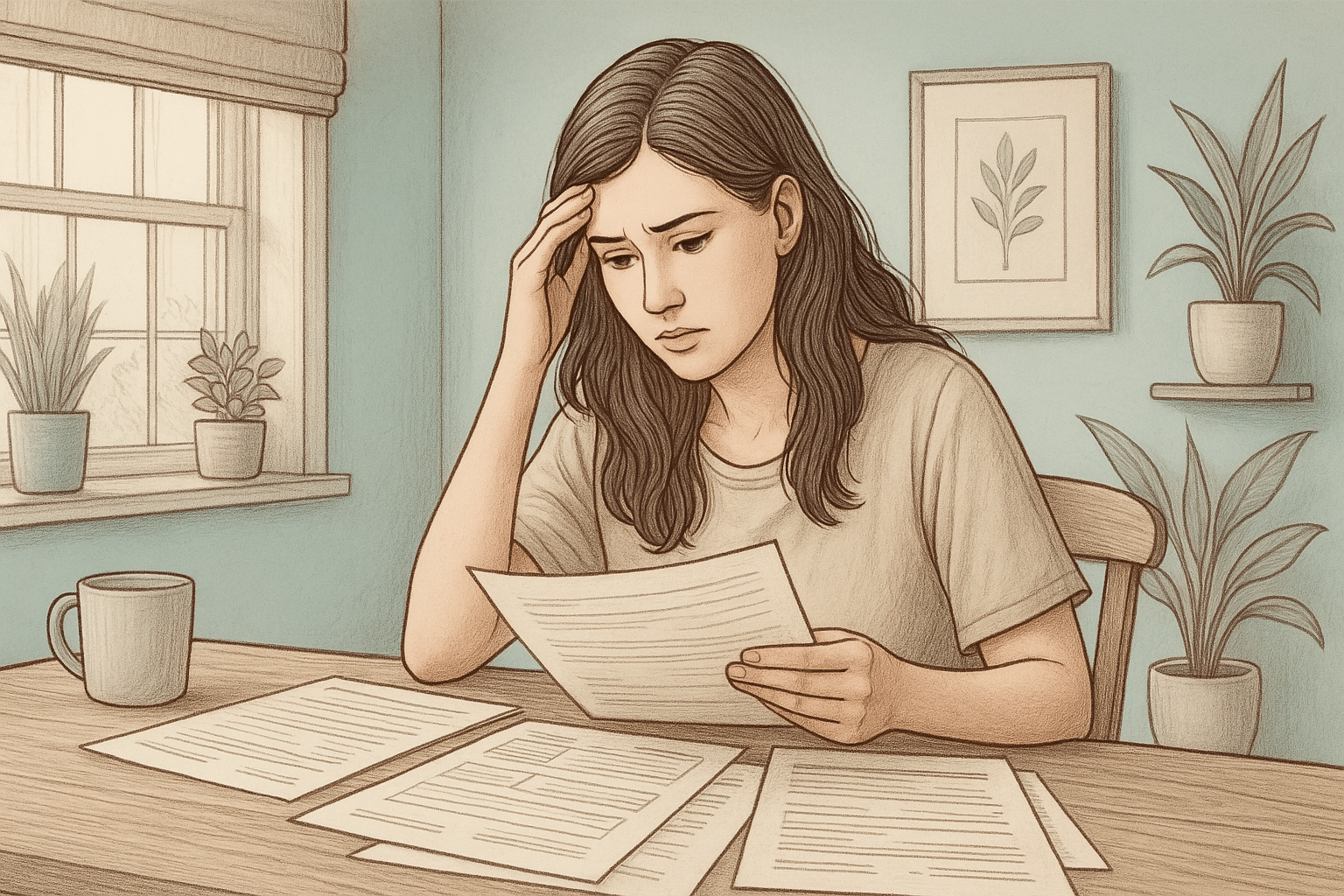
Guaranteed Issue Policies
Guaranteed issue life insurance policies accept all applicants regardless of health status, including those with anxiety disorders. These policies require no medical exams or health questions, making them accessible options for those who might otherwise be denied coverage.
The trade-off is that guaranteed issue policies typically offer lower coverage amounts (usually between $5,000 and $25,000) and come with higher premiums than standard policies.
Most guaranteed issue policies also include a graded death benefit, meaning if you pass away within the first 2–3 years of coverage (except in cases of accidental death), your beneficiaries may only receive a return of premiums paid plus interest rather than the full death benefit.
Despite these limitations, these policies provide a valuable safety net for those who might otherwise remain uninsured due to anxiety or other health conditions.
Graded Benefit Plans
Graded benefit life insurance plans offer a middle ground between fully underwritten policies and guaranteed issue coverage. These plans typically ask limited health questions but are more lenient regarding anxiety disorders than traditional policies.
Like guaranteed issue policies, they include a graded death benefit period, but they often offer higher coverage amounts and slightly lower premiums.
Some graded benefit plans may deny applicants with very severe anxiety or recent psychiatric hospitalizations, but they accommodate many applicants with managed anxiety conditions who might face high rate increases with traditional coverage.
Group Life Insurance
Employer-sponsored group life insurance often requires no medical underwriting, providing coverage regardless of your anxiety diagnosis. Many employers offer basic coverage (typically 1–2 times your annual salary) at no cost to employees, with options to purchase additional coverage at group rates.
The major advantage is the guaranteed acceptance, though coverage amounts may be limited compared to individual policies.
Secure Your Coverage
Securing appropriate insurance with an anxiety disorder requires preparation, persistence, and sometimes professional guidance.
Start by gathering comprehensive documentation of your treatment history, including statements from your mental health providers about your condition’s stability. Consider working with an independent insurance broker who specializes in high-risk or impaired-risk cases, as they’ll know which companies have more favorable underwriting guidelines for anxiety disorders.
Process Insurance Confidently with Mission Connection
At Mission Connection, we recognize that insurance concerns often create additional stress for those already managing anxiety disorders. Our experienced team not only provides evidence-based anxiety treatment but also helps clients understand their insurance options and manage complex healthcare systems.
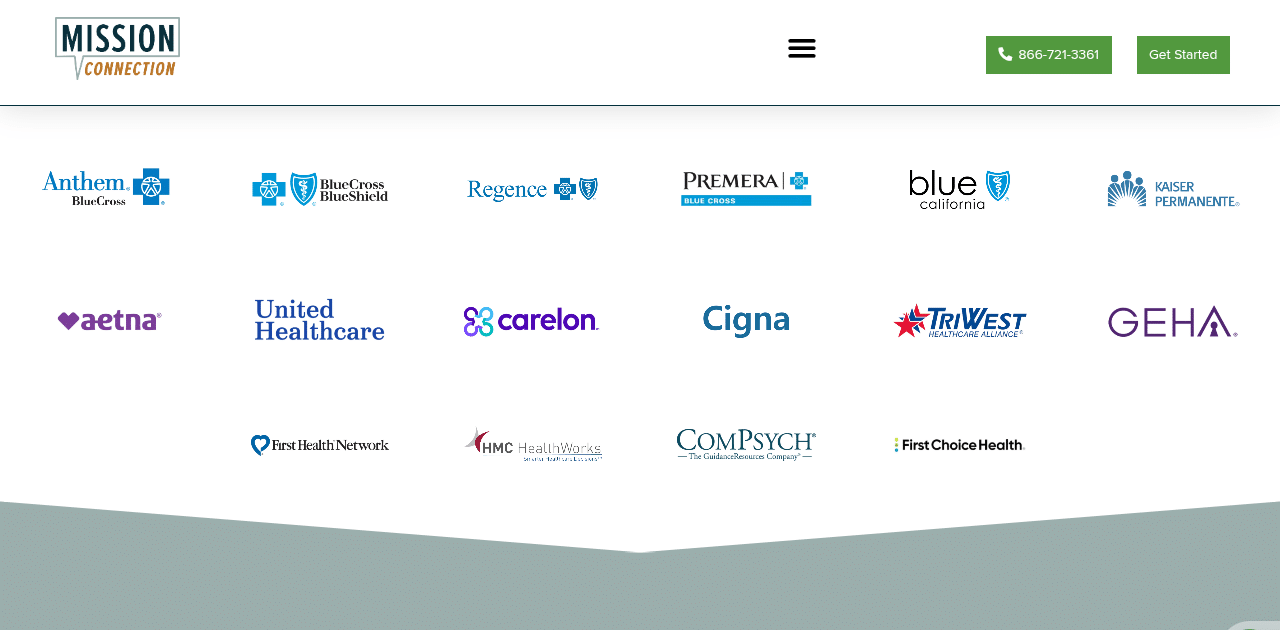
Our comprehensive approach addresses both your immediate treatment needs and long-term wellness goals. Through convenient telehealth options, HIPAA-compliant services, and specialized anxiety treatment programs, we ensure that insurance barriers don’t prevent you from accessing quality mental health care.
Don’t let pre-existing condition concerns delay your path to recovery, contact Mission Connection today to learn how we can support both your mental health journey and insurance processing needs.
Call Today 866-833-1822.
Frequently Asked Questions (FAQ)
Can insurance companies charge me more for having anxiety?
For health insurance, the Affordable Care Act prohibits insurers from charging higher premiums based solely on pre-existing conditions, including anxiety disorders. This protection applies to all ACA-compliant health plans, whether purchased through marketplaces or directly from insurers.
Premiums may vary based on age, location, tobacco use, and plan category, but not your anxiety diagnosis.
Do I need to disclose my anxiety medication on insurance applications?
Yes, you must disclose all prescribed medications, including those for anxiety, on both health and life insurance applications. Insurance applications typically include specific questions about prescription medications, and many companies also check prescription databases during the underwriting process.
Failing to disclose medication information could be considered misrepresentation, potentially resulting in denied claims or policy cancellation if discovered later.
Will my anxiety diagnosis affect my existing insurance coverage?
For health insurance, your existing coverage cannot be canceled or restricted due to an anxiety diagnosis that occurs after your policy begins. The ACA prohibits rescissions (retroactive cancellations) except in cases of fraud or intentional misrepresentation.
Your renewal rights and premium rates cannot be individually adjusted based on health conditions that develop during your coverage period.
Can I get denied life insurance completely because of anxiety?
Complete denial of life insurance solely for anxiety is relatively uncommon, especially for mild to moderate cases with effective treatment. However, severe anxiety with complications such as multiple hospitalizations, suicide attempts, or disability may result in denials from some insurers.
If you’ve been denied by one company, we recommend consulting with an independent insurance broker who can suggest companies with more favorable underwriting for anxiety disorders.
How does Mission Connection help clients with anxiety and insurance concerns?
Mission Connection offers personalized, evidence-based anxiety treatment while helping clients manage complex insurance systems.
Our experienced team of clinicians understands insurance coverage for mental health services and works with various insurance plans to maximize your benefits.








